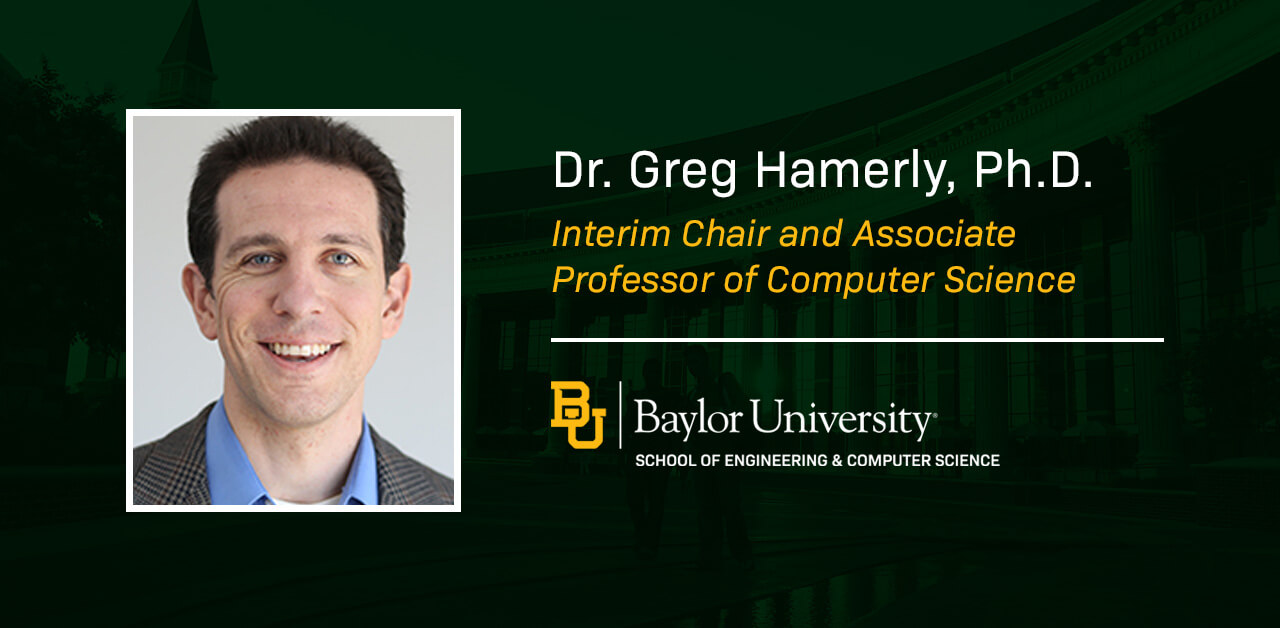
Q: What is your proudest accomplishment during your tenure at Baylor?
It's been wonderful getting to work with students who are capable and self-motivated and capable. One of my former students, Ryan Henning, got a master's degree by writing software to detect symptoms of retinoblastoma (pediatric eye cancer) in real-time, using recreational photos from consumer-grade phones. And this was almost eight years ago, when phones were not nearly as powerful as today. You can download our app for free with links from here.
Q: As Interim Chair of Baylor’s Computer Science Department, what are your goals and opportunities to make an impact?
My goals are to make sure the students and faculty and staff have the opportunities they need to learn, grow, and thrive, and to foster a culture of caring for each other as we go.
Q: How do you balance the responsibilities of your chair, teaching and research roles with family life?
I try to group similar tasks, block out time for the most important things, and distinguish between those things that are important and those things that are "merely" urgent. I am also learning to trust others to do their jobs (because they do them well!). And I ask my wife how I can be more strategic when I know I need to be.
Q: Tell us about your field research and how you got into it.
I'm in machine learning. My first exposure to it was in graduate school when my soon-to-be advisor (Charles Elkan) gave a talk called "Towards Self-Funding Research", which was about using machine learning to predict stock market fluctuations. I've used machine learning to tackle many applied problems including computer architecture simulation, detection of eye disease symptoms, and identifying invasive aquatic species.
Q: Do you see a greater need for computer science being leveraged in other fields and industries? If so, how?
It's no secret that computing is used in many more aspects of life than at any time previously, and that is due to the expansion of data collection and inexpensive computing power. With growth in computing comes a growth in the need for computer science — that is, people with the knowledge of how to bend a computer to do the right kinds of computations.
Q: In your professional opinion, what is the biggest challenge the computer science field is facing today? How is Baylor helping address this?
I am concerned about the proliferation of misinformation and the ease with which it can be created. Dr. Pablo Rivas and others in our department are working on Responsible AI, and have a grant to help set up a center of ethics for AI with Rutgers and University of Miami.
Q: What advice would you give yourself if you were at the start of your career?
Don't be afraid to take (calculated) risks.
Q: What advice would you give potential students considering an MCS degree at Baylor?
Always keep in mind your goals and motivations that brought you to start your degree. There may be times when the work is difficult, or you may get stuck. Remember what brought you to where you are. Ask for help when you need it. Baylor faculty members are in your corner; we want you to grow, learn and succeed.
View Dr. Hamerly's faculty profile for more information about his research.


